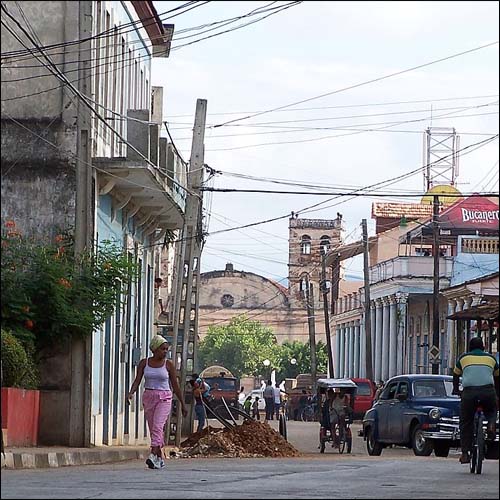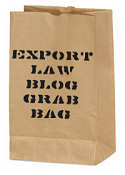![Cuba Capitole by y.becart(Own work) [CC-BY-SA-2.0 (http://creativecommons.org/licenses/by-sa/2.0)], via Flickr https://www.flickr.com/photos/yoh_59/13697566663 [cropped] Cuba Capitole by y.becart(Own work) [CC-BY-SA-2.0 (http://creativecommons.org/licenses/by-sa/2.0)], via Flickr https://www.flickr.com/photos/yoh_59/13697566663](https://www.exportlawblog.com/images/cuba_capitol_car.jpg)
With the corpses of banks skewered by OFAC strewn around everywhere you look, it is not altogether surprising that banks are terrified of the agency and are scared to death that the slightest misstep might bring the wrath of the agency down upon them. The latest instance of acute ofacaphobia, reported here in an excellent Miami Herald article, involves banks in a panic that travelers to Cuba on one of the general licenses might be fibbing and might really be going to Cuba to drink mojitos in Old Havana and hang out on the beach.
Before travelers can arrive in Cuba, the airline or charter company needs to pay $194 per passenger for landing fees and mandatory health insurance. According to the article, now that passengers self-certify their eligibility under the twelve categories covered by the general license for travel, banks are trying to verify that these self-certifications are accurate, asking for itineraries and other information to assure themselves that they won’t be the next cow in the OFAC abbatoir.
Meanwhile, analysts said perhaps the biggest reason banks are wary of Cuba business are the huge — and recent — fines aimed at banks that have done business with sanctioned countries. Just last month, France’s Crédit Agricole bank paid nearly $800,000 [sic – $800,000,000] to U.S. state and federal agencies to settle allegations it tried to hide or obscure references to transactions involving U.S.-sanctioned nations, including Cuba.
The result has been that travelers arrive at the airport only to learn that they aren’t going to Cuba, that the flight has been cancelled, and that they have to go home because necessary fees had not been transferred by the U.S. banks. Apparently they are so irritated that charter companies have gone to the airport with “police escorts” to deliver the bad news.
This should come as no surprise to OFAC. And there is a simple solution: issue guidance to the banks that they can rely on the traveler’s self-certification of their eligibility under the general license. If Justin Whiteshoes says he’s going to Cuba on a people-to-people tour and is, in fact, going on a bar-to-bar tour, it is going to be Justin Whiteshoes who gets whacked and not the bank that wired his $194 fee to Cuba.

 Posted by
Posted by  Category:
Category: 

 The NBC affiliate in Miami on September 29 issued an “
The NBC affiliate in Miami on September 29 issued an “![A Cubana Ilyushin Il-96-300 at Domodedovo International Airport by Dmitriy Pichugin [GNU Free Documentation License, Version 1.2 ], via https://commons.wikimedia.org/wiki/File:Cubana_Il-96-300_CU-T1254_DME_Feb_2009.png [cropped] A Cubana Ilyushin Il-96-300 at Domodedovo International Airport by Dmitriy Pichugin [GNU Free Documentation License, Version 1.2 ], via https://commons.wikimedia.org/wiki/File:Cubana_Il-96-300_CU-T1254_DME_Feb_2009.png [cropped]](https://www.exportlawblog.com/images/Cubana.jpg)
 Here are a few recent developments that you may have missed:
Here are a few recent developments that you may have missed:![Cuba - Havana - Car by Didier Baertschiger [CC-BY-SA-2.0 (http://creativecommons.org/licenses/by-sa/2.0)], via Flickr https://www.flickr.com/photos/didierbaertschiger/11785935544[cropped] Cuba - Havana - Car by Didier Baertschiger [CC-BY-SA-2.0 (http://creativecommons.org/licenses/by-sa/2.0)], via Flickr https://www.flickr.com/photos/didierbaertschiger/11785935544[cropped]](https://www.exportlawblog.com/images/cuba_car2.jpg)


